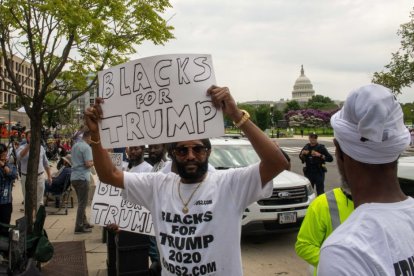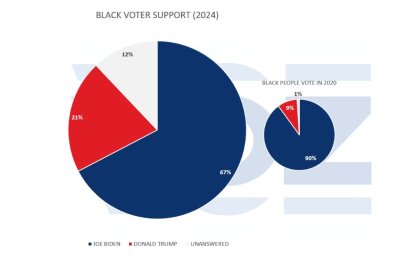Trump gains ground on Biden among black voters
Part of the community, a traditional Democratic voter, is losing confidence in the president and would opt for the virtual Republican candidate.

(Cordon Press)
Historically, the black community has been a mine of votes for the Democratic Party in every electoral process. In the last presidential elections, the then Democratic candidate, Joe Biden, garnered the support of around 90% of the black electorate (87% of men and 93% of women), which facilitated his arrival at the White House. However, as the president's term has progressed, this immense support is waning, something that would make it difficult for him to renew his office for four more years.
According to a Wall Street Journal poll of seven swing states (Pennsylvania, Michigan, Arizona, Georgia, Georgia, North Carolina, Nevada and Wisconsin), about 67% of blacks are considering supporting Biden if he is the blue candidate in the November election. By gender, the proportion of women (77%) is much higher than that of men (57%).

Diseño sin título - 2024-04-12T133203.138
Also among college and non-college students, support for the president would fall: 71% of the former - in 2020 91% voted for him - and 66% of the latter would opt for him - he also received the electoral support of 91% of this segment.
Black support for Trump would increase
This detriment that Biden would suffer would have an opposite effect on his virtual rival. Donald Trump, the clear Republican contender on the November ballot, would see a welcome improvement in the percentage of black voters who would back him.
In 2020, the former president won the support of only 9% of the black community (12% of men and 6% of women went for him). For the next election, Trump would reach 20.5% of the black electorate vote (30% of men and 11% of women).
The proportion of black college students who would elect Trump would increase from 8% to 18%. The same situation would occur among non-college students: from 9% to 21%.
RECOMMENDATION





















